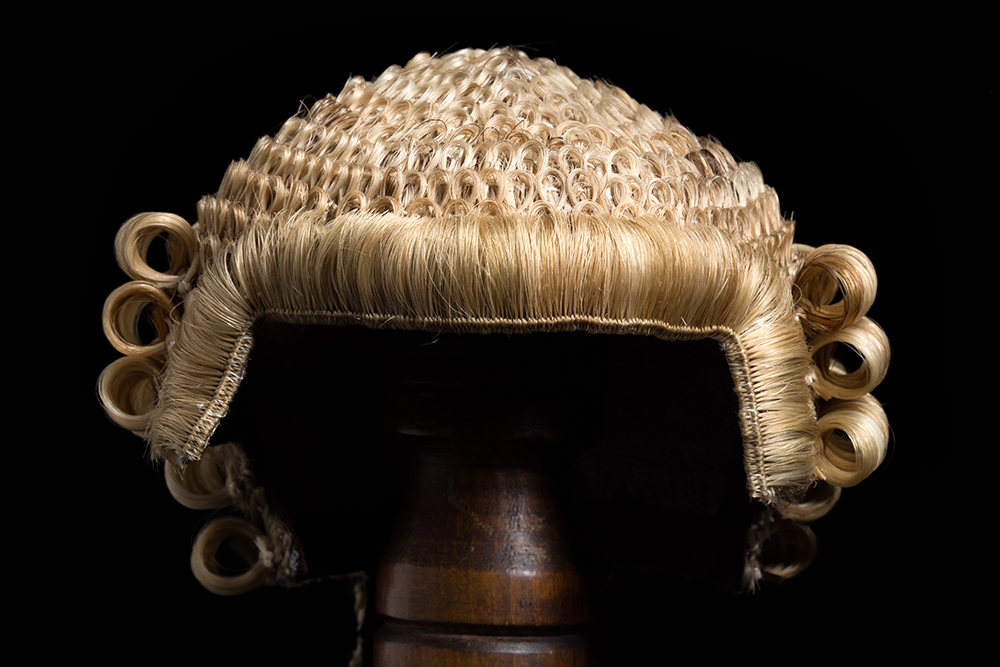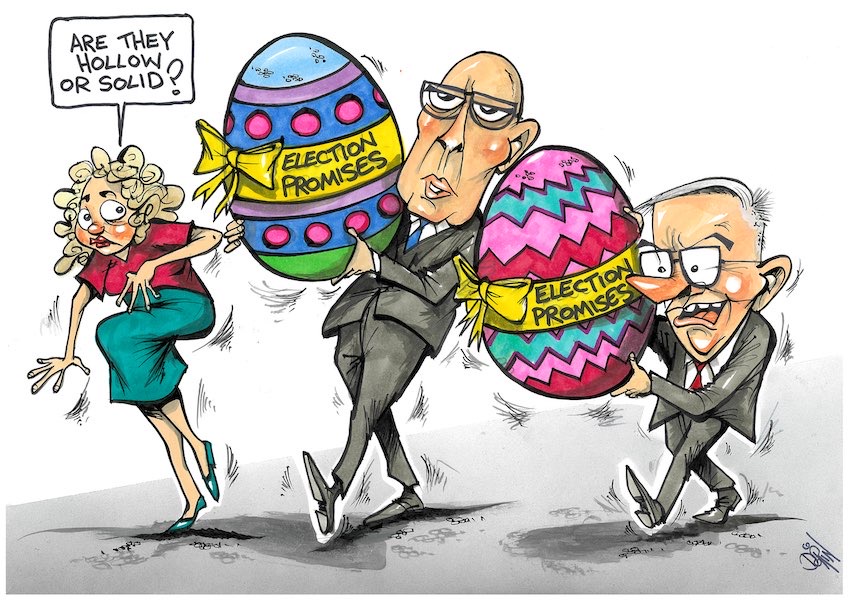
Our former DPP made ill-advised allegations and demanded an inquiry. He got one, albeit not the one he had in mind, which led to a much-needed rebalancing of the out-of-kilter approach in our ODPP. If NSW is lucky, its DPP’s whinge to the Judicial Commission will lead to some overdue change, too, says legal columnist HUGH SELBY.
DPPs who make complaints should beware the unexpected

This article draws attention to a repeated failure by a prosecutor’s office (ODPP) to act with professional courage, then to a bit of bad law and, finally, to a cringeworthy complaint.
Thankfully for us this has happened in NSW; however, there are some parallels to experiences in the ACT, highlighted in this year’s Sofronoff Inquiry.
“The Australian” has been reporting the disquiet of several NSW District Court judges about some sexual assault complaints that are being brought to trial by the NSW ODPP.
This week it has drawn attention to criticisms made by Judge Newlinds in the wrap-up to a case following an acquittal, including: “The pattern (by a complainant who has made complaints against a succession of male partners) of making very similar allegations sparked concern for [the] judge, who questioned whether prosecutors were taking a ‘lazy and perhaps politically expedient’ approach to putting rape cases before juries without properly interrogating the rational basis of the complaint”.
ODPP are expected to make decisions to go, or not to go, to trial that reflect an informed, objective, dispassionate assessment of the strength of the case.
The ODPP acts as gatekeeper to ensure that the courts, defendants, jurors and taxpayers are not being abused by complaints that cannot be proved beyond a reasonable doubt.
In a nutshell, the ODPP has an obligation to bring to trials only those matters that have a reasonable prospect of success.
To wash their hands and say: “Let’s leave it to the jury to decide” is unacceptable.
“The Australian” is suggesting that this has now become a too frequent practice.
As became clear to all those following our 2023 Sofronoff inquiry, the police investigate and lay or do not lay charges. Thereafter the ODPP can decide to bring or not to bring the matter to court.
Sometimes it is necessary to tell a complainant that the evidence, when presented and tested, will not persuade a fact finder – be that a jury or a judge sitting alone – beyond a reasonable doubt.
The former NSW DPP was known for his preparedness to travel around NSW to give that unwelcome news face to face when necessary. That’s part of the responsibility that goes with the job.
Bad law brings bad results
“The Australian” reports in the same article that: “[The] judge also said accused men could not receive a fair trial when juries were prevented from hearing details of multiple accusations that were bizarrely similar.”
This is just the latest in repeated, but ignored, criticism of a NSW “trial procedure” provision that removes the ability of a trial judge to use their skill and judgement to everyone’s advantage.
In NSW the Criminal Procedure Act, section 294CB (it was once 293) includes:
Evidence that discloses or implies –
(a) that the complainant has or may have had sexual experience or a lack of sexual experience, or
(b) has or may have taken part or not taken part in any sexual activity,
is inadmissible.
This is followed by a number of precise exceptions. If the situation is outside those exceptions then the judge can do nothing.
No discretion is given to the trial judge to act in the best interests of a fair trial and the pursuit of justice in the particular case before them. Injustice follows.
This provision enables poor prosecutors to go to trial knowing that the jurors will not be told about evidence that may be highly relevant to their assessment of the complainant’s believability. Bluntly, it gives poor prosecutors an unfair advantage.
Good prosecutors would carefully consider this excluded material in their overall assessment of achieving a fair trial. They could decide that the effect of the statutory exclusion meant that a fair trial was impossible.
Fortunately, here in the ACT the comparable – but much better – provision, in the Evidence (Miscellaneous Provisions) Act sets out (sections 75 to 78):
Evidence of the sexual activities of the complainant is not admissible in a sexual offence proceeding without leave of the court ….
The court must not give leave unless satisfied that the evidence –
(a) has substantial relevance to the facts in issue; or
(b) is a proper matter for cross-examination about credit [that is “believability’’]. Sexual activity evidence is not to be regarded as being a proper matter for cross-examination about credit unless the evidence, if accepted, would be likely to substantially impair confidence in the reliability of the complainant’s evidence.
“No discretion” approaches (such as the NSW provision) are troublesome because legislators and the law drafters can never foresee the full range of possibilities (this, by the way, is why mandatory sentences are also a bad idea).
It is the unexpected that necessitates judicial discretion. An ACT judge can decide if background material about a complainant can or cannot be put before a jury as being relevant to the specific allegations. What is relevant in one case may not be relevant in another.
Best not to appear as unable to deal with informed criticism
According to “The Australian”: “The Judge’s comments recorded his ‘deep level of concern that there is some unwritten policy or expectation in place in the (NSW) Office of the Director of Public Prosecutions’ that if any person alleges they have been sexually assaulted, the case should be prosecuted so as to let the jury decide rather than be rationally interrogated.
Those comments are now the subject of a complaint to the Judicial Commission of NSW by the state’s DPP, Sally Dowling SC, who has accused the judge of abandoning impartiality and undermining confidence in the criminal justice system”.
Oh, dear. The decisions of a DPP are hidden behind a wall of silence. There is no complaint mechanism, no review of their decisions. From that perspective it seems more than a little surprising that the present NSW DPP allegedly chooses to complain about well-grounded judicial observations. It doesn’t sit well.
It is important that judges bring to the wider public’s attention any problems in our criminal justice system – especially those that are observed repeatedly.
The “undermining of public confidence” flows, not from the judge making apt comments, but from the root causes within the ODPP and the damage causing section 294CB. It is these problems that lead to his having to comment.
It was in December last year that our former DPP made ill-advised allegations and demanded an inquiry. He got one, albeit not the one he had in mind. The result was a much needed rebalancing of the out-of-kilter approach to key values in our ODPP.
If NSW is lucky their DPP’s whinge to the Judicial Commission will lead to some overdue change.
Light will be shed on how important decisions are going awry in their ODPP, what has to be done to return to the true path of objectively assessing the whole of the prosecution case, having the state government amend section 294CB to bring back judicial discretion, the ODPP taking responsibility for decisions, and carrying the burden of giving unwelcome news to some complainants: the criminal justice system cannot bring the outcome that you want. There will not be a trial.
Hugh Selby is a former barrister. His free podcasts on “Witness Essentials” and “Advocacy in court: preparation and performance” can be heard on the best known podcast sites.
Who can be trusted?
In a world of spin and confusion, there’s never been a more important time to support independent journalism in Canberra.
If you trust our work online and want to enforce the power of independent voices, I invite you to make a small contribution.
Every dollar of support is invested back into our journalism to help keep citynews.com.au strong and free.
Thank you,
Ian Meikle, editor









Leave a Reply